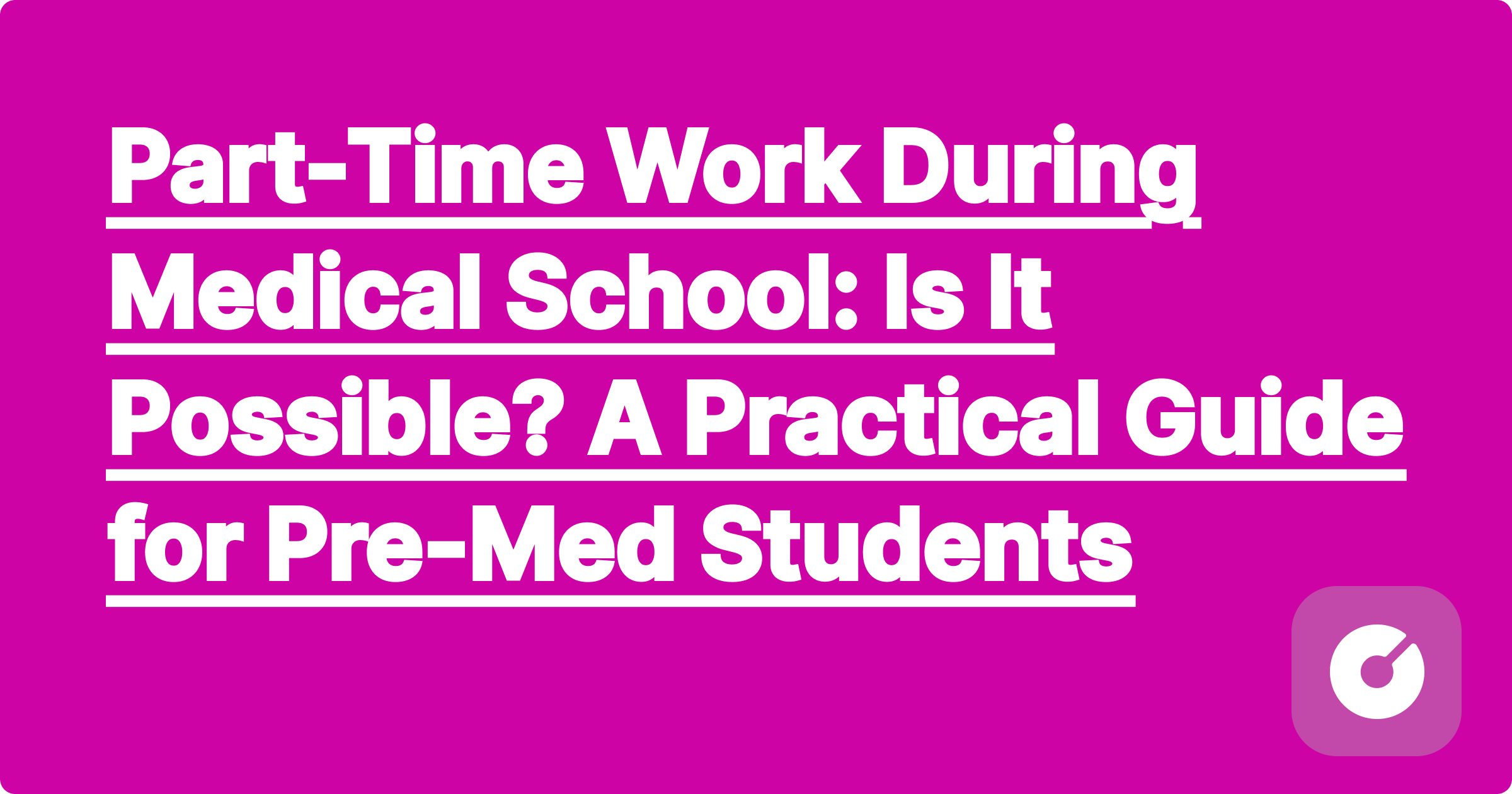
The dream of becoming a doctor is often accompanied by the daunting reality of medical school's financial burden. Tuition, living expenses, and the sheer cost of studying can quickly become overwhelming. This leads many pre-med students to wonder: is it possible to work part-time during medical school? The short answer is: yes, but it requires careful planning, dedication, and a realistic assessment of your capabilities.
This comprehensive guide explores the feasibility of working part-time during medical school, providing practical advice and actionable strategies to help you navigate this challenging but potentially rewarding path.
Before diving into the possibilities of part-time work, let's address the elephant in the room: the cost of medical school. Tuition fees vary significantly depending on the institution – public vs. private, in-state vs. out-of-state. In 2024, the average annual tuition for a public medical school can range from $30,000 to $60,000, while private medical schools often exceed $60,000, sometimes reaching upwards of $70,000 or more. These figures exclude living expenses, books, supplies, and other miscellaneous costs, which can easily add another $20,000-$30,000 annually.
Example: A student attending a private medical school for four years could face total tuition costs exceeding $240,000, not including living expenses. This significant financial burden underscores the potential benefits of supplementing income through part-time work.
While finding a high-paying, flexible job during medical school can be challenging, several options exist:
Many medical schools offer research opportunities within their departments. These positions often provide valuable experience, can be tailored to your schedule, and may offer a modest hourly wage (ranging from $15-$30/hour depending on experience and the institution). The time commitment varies greatly depending on the research project.
Your strong academic background in science subjects can translate into tutoring opportunities for undergraduate students. Similarly, some medical schools hire teaching assistants for introductory courses. These positions usually offer a flexible schedule and competitive pay ($20-$40/hour).
While demanding, roles like medical scribe, pharmacy technician, or medical assistant offer relevant experience and can provide a better understanding of the healthcare system. Pay varies depending on location and experience, but you can expect an hourly rate between $18-$25.
The rise of remote work has opened up new avenues. Consider online tutoring, virtual administrative assistance, or freelance writing or editing – jobs that can be done during evenings or weekends. Pay varies significantly based on the type of work and your skillset.
Medical schools often have various part-time positions available, such as library assistant, administrative support, or IT help desk. These usually offer flexible schedules and a consistent income.
Successfully juggling part-time work and medical school demands meticulous time management and prioritization.
Detailed Schedule: Create a detailed weekly schedule that allocates specific time blocks for classes, studying, clinical rotations, and work.
Prioritize Tasks: Identify your most important tasks and tackle them first. Use time-blocking techniques to ensure you dedicate sufficient time to high-priority activities.
Effective Study Habits: Develop efficient study habits to maximize your learning in less time. Utilize active recall, spaced repetition, and practice questions.
Seek Support: Don't hesitate to ask for help from classmates, professors, or mentors if you're struggling to manage your workload.
Learn to Say No: It's crucial to set boundaries and avoid overcommitting yourself. Learn to politely decline extra responsibilities if your plate is already full.
Working part-time during medical school presents several challenges:
Increased Stress and Burnout: Balancing work and studies can lead to significant stress and increase the risk of burnout.
Impact on Academics: Insufficient time for studying can negatively affect your academic performance.
Limited Free Time: Working part-time drastically reduces the amount of free time available for personal activities and relaxation.
Sarah, a second-year medical student, worked 10 hours a week as a medical scribe while maintaining a high GPA. She meticulously planned her week, utilizing weekends for catching up on studies and allocating specific time slots for work and studying. She also prioritized sleep and regular exercise to manage stress and maintain her overall well-being. Her experience highlights the possibility of successfully balancing work and studies with effective planning and self-discipline.
The decision of whether or not to work part-time during medical school is highly personal. It depends on your financial needs, academic capabilities, time management skills, and overall resilience. Carefully weigh the potential benefits against the challenges before making a decision. If you choose to work, start with a smaller number of hours and gradually increase your workload as you become more comfortable balancing your responsibilities.
While challenging, working part-time during medical school is achievable with careful planning, effective time management, and a realistic assessment of your capabilities. By exploring various opportunities, prioritizing your tasks, and seeking support when needed, you can successfully navigate this demanding path and achieve your academic and financial goals. Remember to prioritize your mental and physical well-being throughout this journey. The key to success lies in finding a balance that allows you to excel academically while maintaining a healthy lifestyle.
Second Career Medical Students: Changing Paths to a Rewarding Career
Foreign Medical Schools for US Students: A Comprehensive Guide for 2024 and Beyond
Osteopathic Medicine: Growing Acceptance and Benefits for Aspiring Physicians
Joint Degree Programs: MD/MBA, MD/JD, MD/MPH – Your Path to a Multifaceted Career in Medicine
Balancing Relationships During Medical School: A Guide for Pre-Med Students
Physician Assistant vs. Medical School: A 2024 Decision Guide for Pre-Med Students
Medical School Application Mistakes to Avoid: A Comprehensive Guide for Pre-Med Students
Medical School Specialties - Choosing Your Path Early: A Guide for Pre-Med Students
Conquering Medical School Prerequisites While Working Full Time: A Practical Guide
State vs. Private Medical Schools: A 2024 Tuition Comparison Guide for Pre-Med Students